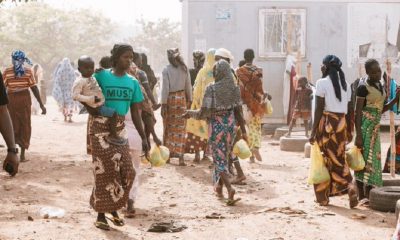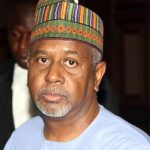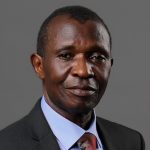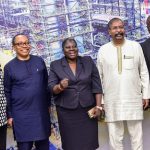World
Annan Identifies Causes of Current Level of Development in Africa

By Kester Kenn Klomegah
In an insightful conversation, the President/CEO of the Institute of African Leadership (IoFAL), Dr Bennett Annan, discusses management styles of African leaders, the system of governance, diversities in political culture and the extent these affect progress and development.
He points to the lack of effective monitoring and evaluation as factors determining the current level of development in Africa. He unreservedly argues that his Institute of African Leadership (IoFAL) provides the necessary cutting-edge skills for young aspiring leaders for Africa. Here are the interview excerpts:
What prompted the recent research titled Leadership Styles of Africans: A Study Using Path-Goal Leadership Theory, something related to management styles of African leaders?
Several years ago, when I was a teenager growing up in Ghana, I watched various politicians talk about policies that they believed will help alleviate poverty, yet when they came to power nothing really good happened to their people. I wondered why?
During that same period of time, I also read in the newspapers many, many times how poor Africans were and how the leaders have mismanaged their countries’ resources. But these were intelligent people, so why?
In 2007, I conducted my first research study in America entitled West African Managers in American Businesses and set up six research sites for the project: New York, New Jersey, Atlanta, North Carolina, Colorado, and California.
I went to these locations and did interviews, both with individuals and focus groups. I realized how intelligent these West Africans were, and how they had assimilated into the American system by practising participative leadership styles, finding success as managerial leaders in many organizations in corporate America.
Then I asked myself why managerial leaders in Africa can’t do the same, because we are capable, and I believe the answer was not far-fetched. The environment in Africa needs to change, and that prompted me to delve into this research of “African Leadership Styles,” to find out the gap between our managerial styles in Africa and that of the industrialized nations, using the Path-Goal Leadership Questionnaire. I used SurveyGizmo to collect data from Africans from various countries, including Ghana, Uganda, Nigeria, Ethiopia, Zimbabwe, and others.
For several years, I’ve been wondering why someone won’t do something about this, why someone won’t figure out why we are the richest continent in the world and yet the poorest, why someone won’t sit down and figure this out. I’ve been told so many excuses and reasons why this cannot be done, but I still didn’t give up finding some solution to this problem.
Just like Albert Einstein said, we cannot do the same thing over and over and over again and expect different results. For Africans, this means we cannot keep mismanaging our resources and seeking help from industrialized nations in the form of loans we are unable to repay. We cannot ask for forgiveness again and again and think things will get better.
Based on this research, we at the Institute of African Leadership have started something little to stop the failed leadership problem, because I believe something little is better than a whole lot of nothing. That is why we delved into the research to find out what managerial leaders in Africa should do to catch up with the industrialized nations, and the answer was very simple.
The findings of my research showed that the only thing that industrialized nations do that Africans do not is to use the participative leadership style most often. Africans use this participative leadership style the least. That means all we need to do is to practice this participative leadership style of management more often. My findings also found that the participative leadership style is not new to African managerial leaders. In fact, my research shows that we practice participative leadership style more than our counterparts in the industrialized nations but do this the least – that means it does not come to us easily.
Why do you think participative leadership is unique to Africa? Do you also see the lack of effective monitoring and evaluation as factors determining the level of development in Africa?
First of all, I want to talk a little bit about what participative leadership style is, so we can be on the same page. Let’s start from the word “participative,” a derivative of the word “participate,” meaning that this leadership style requires participation.
Participative leadership style, as we know it, is when the leader actively involves team members in the decision-making process. In general, it involves all team members in finding solutions to problems. In a way, the leaders turn to the team for input, ideas, and opinions instead of making all decisions on their own. For this style to work, the leader needs to understand the team has the skills and ideas that could benefit the decision-making process, especially when the team owns the problem.
Now, let’s look at Africa for a moment. Research shows African managerial leaders use the directive/autocratic leadership style. The leader retains as much power and decision-making authority as possible. The leader does not consult employees, nor are they allowed to give any input. Employees are expected to obey orders without receiving any explanations.
Most Africans find the participative management style foreign because they are used to the directive/autocratic style of leadership, which is outdated and adds costs to the organization. The participative style is modern, reduces costs, and increases profit margins. The task at hand is to create a plan to change the African managerial leadership style from directive/autocratic to participative.
However, Africans in management positions can be successful if they make the change from a directive/autocratic to a participative leadership style at the institutional and personal levels. Though these are difficult things to do, as this study has found, they still have to do it.
There is a sense of urgency here. Africans need to embrace cultural change as a means of making themselves ready for globalization, or else they are likely to be left behind in the global economy. This may result in further reducing levels of socio-economic development and standards of living, worsening education and health, and increasing fertility and mortality rates. If nothing is done about this issue, we would be denying the African people their best hope for escaping poverty.
The other question is whether I see the lack of effective monitoring and evaluation as factors determining the level of development in Africa. Yes, of course, I do see that, but one thing about the participative leadership style is the belief that where the problem is, lies the solution. This is what I mean: If we can use this participative leadership style, it allows us to create teams to solve the problem, with inputs, ideas, and opinions coming from members of the group. They figure out ways and means to address the problem instead of relying on the people at the top of the organization for a solution. When the decisions and solutions come from the members of the team, these members tend to own and practice the solutions wholeheartedly, unlike when the solution comes from the top, in which case the team members are less likely to embrace the solutions because they did not buy into them.
Do you agree that there are diversities in political culture in African countries? What could be the best way to systematize and combine efforts in implementing policies to the benefit of the population?
Yes, I do agree that there are diversities in political culture in African countries. Let me tell you this: There are individual differences in the political culture of the African countries – talents, skills, and experiences. We are all very different, even twins because we carry different DNA, fingerprints, and so on. However, we are all human beings who are generally gregarious, being together, working together, and solving problems together.
Research has shown that Africans, by nature, are a collectivist culture. That means our culture places emphasis on cohesiveness among individuals; we prioritize the group over the self. We find common values and goals in whatever we do. In a way, this is the fundamental of a participative leadership style, where the members of the team get together to solve problems. So, we have these participative leadership style traits in us, but the leader does not use the grouping ideology in collecting inputs, ideas, and experiences in the decision-making process.
I strongly believe the best way to systematize and combine efforts in implementing policies to the benefit of the population is to fall back on this collectivist culture that we embrace amongst the African people as a first step. This is the very foundation of making the change I have been talking about from the autocratic/directive leadership style to participative leadership style.
Next is to use cognitive behavioural techniques to change the mindset – a process of “melting” the autocratic/directive leadership style and refreezing into a participative leadership style mould. This creates a new mindset that allows us to seek inputs, ideas, and experiences from members of the team in decision-making and problem-solving.
Finally, this where I come in. I have about 15 different training lessons on the African Participative Leadership Training Program. These lessons are about 1 hour each, and they are online, on-demand at our website (www.iofal.org). The good news is these lessons are free and currently under construction; they should be ready to go by May 2021.
The training program is comprised of lessons on the rationale behind the change of autocratic/directive leadership style to the participative, and it runs through lessons like changing the current mindset of the African managerial leaders and the process for how to make this change work. Then there are also lessons regarding unethical behaviours. The beauty of this training program is how the change process incorporates the African culture, making it a very unique style of managerial leadership that we call the African participative leadership style.
Our plan is to secure location sites in every Black African country with representatives who will engage in the promotion of this program, advertising and running commercials and getting people to know about this free African participative leadership style training program. We want to make sure that every single African participative managerial leader gets access to this training no matter where they come from or their economic status. As long as they have internet access, whether through their phones or through their laptop computers, they can go through this training program successfully from anywhere.
Just to give you a clue as to how the program is laid out: First, participants take a pre-lesson assessment, then they start the very first Lesson 1. After each and every lesson, participants take a 10-question quiz to make sure that learning has taken place; if they pass, they jump on to the next lesson. Finally, after the 15 lessons, there is an exam of about 25 questions. Once they pass, an electronic certificate is emailed to them to show that they have gone through this training program and they are deemed ready to put what they have learned to practice.
In what ways would you argue that the Institute of African Leadership is an educational institution that provides the necessary skills for young aspiring leaders?
This is a very good question. First of all, my research study used the Path-Goal Leadership Questionnaire to measure the directive/autocratic leadership style of participants among four different age groups. The results show the 18 to 29 age group had a directive/autocratic style average score of 28.5, the lowest among the four groups measured: (a) 18 to 29 years, (b) 30 to 44 years, (c) 45 to 59 years, and (d) 60 and older.
The study also showed that the same 18 to 29 age group had a participative style average score of 24.8, the highest among the four groups measured. Thus, young aspiring African leaders between 18 and 29 years old are predominately participative-centric, and less likely to be so as they get older. This group of African leaders needs the training now to reinforce their current participative style before they age into the next group when it gets harder to change their mindset.
Entrepreneurship is very challenging. What keeps you personally motivated as a chief executive officer of the Institute of African Leadership?
I agree that entrepreneurship comes with a lot of challenges, and some are difficult to overcome, but I know I have to deal with it come what may. I have been teaching and working as a mechanical and manufacturing engineer for some 40 years now, and it seems almost impossible to manage another career – training and developing African managerial leaders. I have dropped that career and am currently pursuing a training and development career.
I have been an entrepreneur once before and failed, then I went back to my predictable career, working again for an organization as an engineer. I have learned my lessons, especially when it comes to funding. This time, I have a pool of capital that will lead me to establish the first phase of this training program, which is getting the website and the lessons fully completed and ready for the participants, and I am happy about that. However, the second phase, which entails the dissemination of the training program via advertising (e.g., radio, TV, billboards, and newspapers) throughout all the countries in sub-Saharan Africa, requires additional resources and funding to make it work. I am currently seeking help from monetary organizations.
There are numerous factors that keep me personally motivated as a director of the Institute of African Leadership: (a) my will to problem-solve, (b) my vision, and (c) my education. However, and like I said before, I continue to ruminate several years ago, when I was a teenager growing up in Ghana and watched various politicians talk about policies that they believed would help alleviate poverty. Yet, when they came to power, nothing really good happened for their people. I wondered why? During that same period of time, I also read in the newspapers many times how poor Africans were and how the leaders have mismanaged their countries’ resources. But these were intelligent people, so why? This is where my will to problem-solve comes in, wanting to at least contribute my share of solving the failed leadership in Africa. I believe, where there is a will, there is a way.
Also, like I said earlier on, my research found that Africans in US businesses have assimilated into the American system by practising participative leadership styles, finding success as managerial leaders in many organizations in corporate America. That tells me African managerial leaders are capable, but it seems the environment in Africa does not allow them and that environment needs to be changed. I’ve been told so many excuses and reasons why this cannot be done, but I still didn’t give up finding some solution to this problem. This is where my vision for Africa comes in, where one day through the African Participative Leadership Training Program (APLTP) we will discover our true selves just like that, embrace our problems, become capable to solve our own problems our own way, grab our power back, and the whole game changes. Africa will be economically free forever. Japan, Singapore and other nations did it, why can’t we?
Of all the ways, I describe myself – mechanical engineer, manufacturing and quality engineer, business manager, counselor, professor, professional consultant, author, and researcher – perhaps the most fitting is multipotentiality, which is defined as someone whose interests span multiple fields or areas rather than someone who is proficient in just one. I hold a Bachelor of Science, B.S., degree and Master of Science, M.S., degree in mechanical engineering, a Further Education Teachers’ Certificate, (F.E.T.C.), a Master of Business Administration, MBA, degree, a Doctor of Education, Ed.D., degree in organizational leadership, a Master of Arts, M.A., degree in clinical psychology, certification as a marriage and family therapist, MFT, and a Doctor of Psychology, PsyD. This is where my education comes in, an excellent corporate trainer, teaching African leaders to help their followers cultivate their skills and knowledge by providing complete training and sharing my rich and tremendous knowledge and expertise in ways that motivate them.
What is your vision for the Institute of African Leadership and where do you see this business of education and training in the next 5 years, especially clients from Africa?
My vision for the Institute of African Leadership is to create wholesale success and overperformance in organizations in Africa, and eventually decrease poverty, increase the standard of living, and change the way Africans think and act at the institutional and personal level. I know that as the founder I will be expected to generate ideas, and when a competitor emerges, it will be my responsibility to come up with a response plan. When I hit an impenetrable obstacle, my job will be to come up with an alternate plan to move forward. I am capable of moving this program forward because I have tremendous knowledge and rich experience that spans over 40 years as I indicated previously.
There are so many unknown factors that come along with any entrepreneurial venture. For example, how long a business will exist and whether it will be profitable. In this case, will these African managerial leaders like the training and development service that we are creating? There are no solid, reliable answers to any of these questions. However, one thing that I can assure you is the training, development lessons will be online in May 2021 and maintaining this program online will go on forever at no cost to the participants.
In the next 5 years, I see the Institute of African Leadership (IoFAL) will be in every organization, workplaces, everywhere in every sub-Saharan African country, training and developing African managerial leaders in the African Participative Leadership Training Program to achieve our own unique management philosophy, one that is deep-rooted in the African culture, like Japan and others.
Kester Kenn Klomegah is a versatile researcher and passionate contributor, most of his well-resourced articles are reprinted elsewhere in a number of reputable foreign media.
World
Trump Slams 15% Tariff on Nigeria
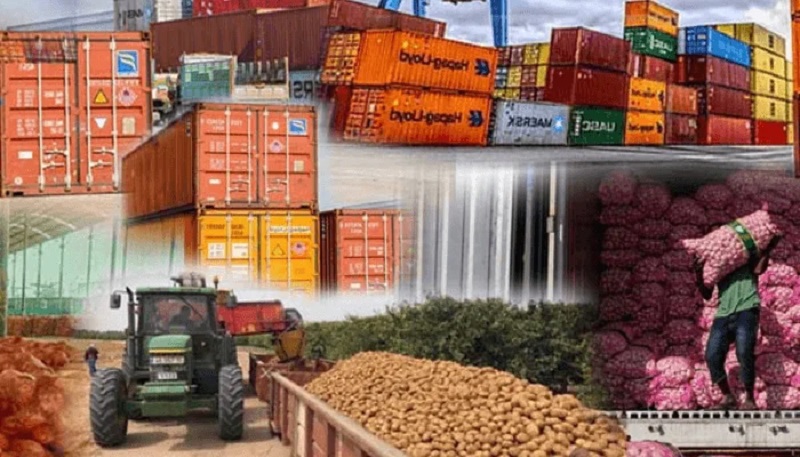
By Adedapo Adesanya
Nigeria will bear a 15 per cent tariff as President Donald Trump looks to enforce tariffs on countries trading with the United States.
President Trump has set a baseline tariff of 10 per cent on all imports to the United States, as well as additional duties on certain products or countries.
The American President says tariffs will encourage US consumers to buy more American-made goods, increase the amount of tax raised and boost investment.
So, Nigerian companies that bring goods into the US have to pay the tax to the government.
However, they may pass some or all of the extra cost on to customers.
Countries and Tariffs
Here is a list of targeted tariffs he has implemented or threatened to put in place.
Afghanistan – 15 per cent
Algeria – 30 per cent
Angola – 15 per cent
Bangladesh – 20 per cent
Bolivia – 15 per cent
Bosnia and Herzegovina – 30 per cent
Botswana – 15 per cent
Brazil – 50 per cent, with lower levels for sectors such as aircraft, energy and orange juice
Brunei – 25 per cent
Cambodia – 19 per cent
Cameroon – 15 per cent
Canada – 10 per cent on energy products, 35 per cent for other products not covered by the US-Canada-Mexico Agreement
Chad – 15 per cent
China – 30 per cent, with additional tariffs on some products. This agreement, which was due to expire on August 12, has been extended for another 90 days through an executive order, according to a White House official.
Costa Rica – 15 per cent
Cote d’Ivoire – 15 per cent
Democratic Republic of the Congo – 15 per cent
Ecuador – 15 per cent
Equatorial Guinea – 15 per cent
European Union – 15 per cent on most goods
Falkland Islands – 10 per cent
Fiji – 15 per cent
Ghana – 15 per cent
Guyana – 15 per cent
Iceland – 15 per cent
India – 25 per cent, additional 25 per cent threatened to take effect August 28
Indonesia – 19 per cent
Iraq – 35 per cent
Israel – 15 per cent
Japan – 15 per cent
Jordan – 15 per cent
Kazakhstan – 25 per cent
Laos – 40 per cent
Lesotho – 15 per cent
Libya – 30 per cent
Liechtenstein – 15 per cent
Madagascar – 15 per cent
Malawi – 15 per cent
Malaysia – 19 per cent
Mauritius – 15 per cent
Mexico – 25 per cent for products not covered by USMCA
Moldova – 25 per cent
Mozambique – 15 per cent
Myanmar – 40 per cent
Namibia – 15 per cent
Nauru – 15 per cent
New Zealand – 15 per cent
Nicaragua – 18 per cent
Nigeria – 15 per cent
North Macedonia – 15 per cent
Norway – 15 per cent
Pakistan – 19 per cent
Papua New Guinea – 15 per cent
Philippines – 19 per cent
Serbia – 35 per cent
South Africa – 30 per cent
South Korea – 15 per cent
Sri Lanka – 20 per cent
Switzerland – 39 per cent
Syria – 41 per cent
Taiwan – 20 per cent
Thailand – 19 per cent
Trinidad and Tobago – 15 per cent
Tunisia – 25 per cent
Turkey – 15 per cent
Uganda – 15 per cent
United Kingdom – 10 per cent, with some auto and metal imports exempt from higher global rates.
World
Agama Urges Tapping into $10trn Digital Assets Opportunities by 2030
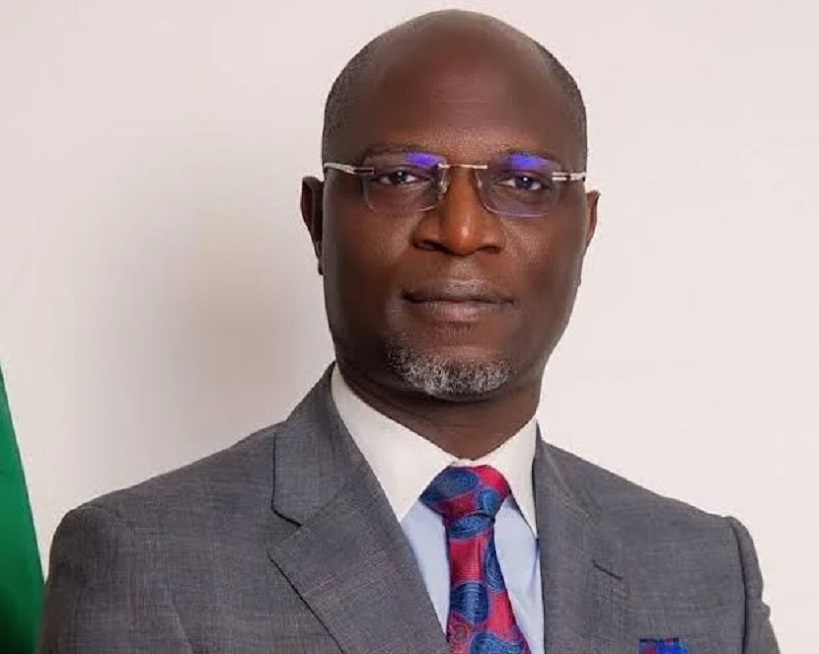
By Adedapo Adesanya
The Director-General (DG) of Nigeria’s Securities and Exchange Commission (SEC), Mr Emomotimi Agama, says Africa and the Middle East must tap into opportunities in digital assets, which will be worth $10 trillion by 2030.
The SEC DG said this in his acceptance speech after he was elected the Vice Chairman of the Africa/Middle East Regional Committee (AMERC) of the International Organisation of Securities Commissions (IOSCO).
According to a statement, with young and tech-savvy populations, Africa and the Middle East must lead and not follow in digital assets.
He said his mandate as the Vice Chairman was to transform the capital markets into engines of inclusive growth, innovation, and shared prosperity for Africa and the Middle East.
”We must aggressively expand listings by working with African Financial Markets Initiative (AFMI) and SSA exchanges to harmonise standards, reduce listing costs, and create cross-border linkages.
”To boost liquidity, we will pioneer regional market-making schemes and advocate for pension fund reforms to channel domestic savings into productive investments.
“Critically, we will partner with AFMI and development institutions to de-risk infrastructure investments and attract global capital.
”However, infrastructure alone is not enough. With 70 per cent of Africa’s population under 30, we must empower youth through: Retail investor programmes to democratise market participation, Fintech sandboxes to nurture youth-led innovation and Listings of high-growth startups to create wealth and jobs,” he said.
Mr Agama said there was still a lot of work to be done despite the progress made by IOSCO, calling on members to continue to render the mutual support and cooperation of past years for the benefit of investors, markets and indeed the world economy.
He noted that the committee would continue to deepen discussions and debates to launch a “Listings Growth Initiative” for Small and Medium Enterprises.
Mr Agama will serve on the Board of IOSCO, the highest decision making organ of the global securities regulatory organisation, till 2026.
IOSCO was established in 1983 as the standard setter for the securities industry worldwide and currently has over one hundred ordinary members. It is recognised as the leading international policy forum for securities regulators. The organisation’s membership regulates more than 95 per cent of the world’s securities markets in over 100 jurisdictions.
World
Tether Exposure to US Treasuries Climbs to $127bn
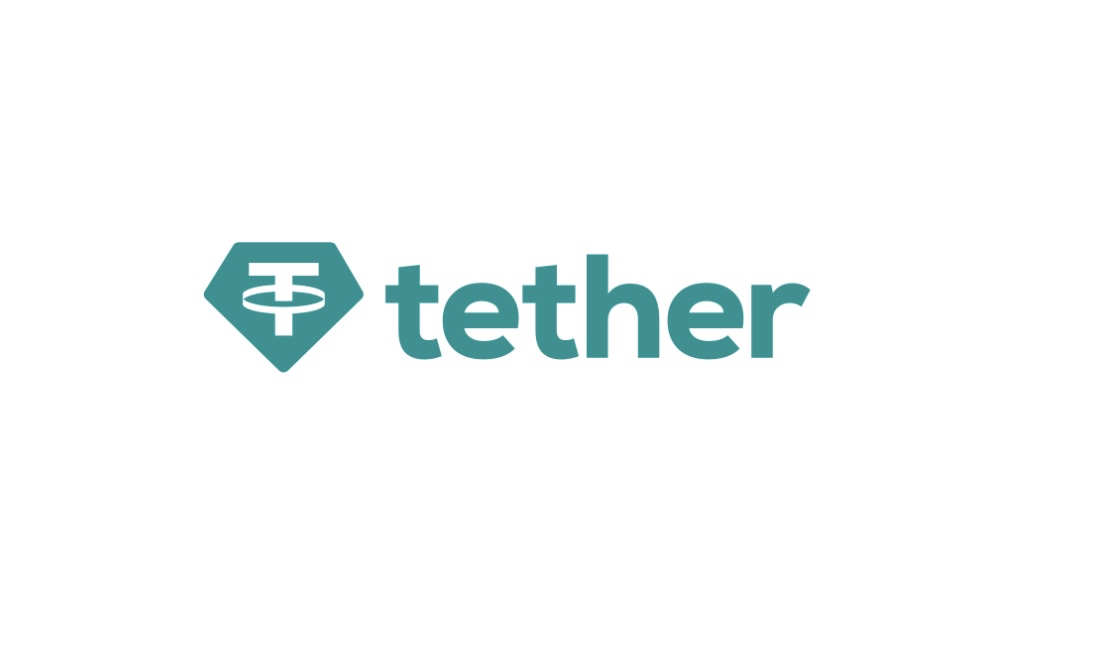
By Aduragbemi Omiyale
A leading figure in the global cryptocurrency landscape, Tether, has revealed that its exposure to the United States treasuries stood at $127 billion in the second quarter of 2025 compared with about $119 held in the first quarter of this year, becoming one of the largest US debt holders.
This milestone comes at a time when US policymakers, through the GENIUS Act, have taken decisive steps to solidify the Dollar’s global leadership in digital form.
Tether’s reserves composition exemplifies how private innovation can align with public monetary goals, serving as a conduit for secure, on-chain access to US Dollar liquidity at scale.
Business Post gathered that the treasuries held by Tether comprise $105.5 billion in direct holdings and $21.3 billion owned indirectly.
In its financial figures, Tether also revealed that it issued over $13.4 billion USDT between April and June 2025, bringing the circulating supply to more than $157 billion, reflecting the growing adoption of the stablecoin and deepening the trust in Tether as the most stable, transparent, and resilient digital dollar instrument in the world.
The firm said it closed June 2025 with a net profit of about $4.9 billion, bringing the total for the first six months of the year to $5.7 billion.
Building on the strength of its equity buffer and continued profitability, Tether has reinvested a substantial portion of its recent earnings into long-term strategic initiatives.
“Q2 2025 affirms what markets have been telling us all year: trust in Tether is accelerating. With over $127 billion in US Treasury exposure, robust bitcoin and gold reserves, and over $20 billion in new USD₮ issued, we’re not just keeping pace with global demand, we’re shaping it,” the chief executive of Tether, Mr Paolo Ardoino, stated.
“As regulators formalize frameworks for digital dollars, Tether stands as a live, proven model of what stablecoin innovation can achieve: transparency, resilience, and massive global reach.
“USDT is helping billions access the stability of the US Dollar, and that mission has never been more urgent or more relevant,” Mr Ardoino added
-

 Feature/OPED6 years ago
Feature/OPED6 years agoDavos was Different this year
-
Travel/Tourism9 years ago
Lagos Seals Western Lodge Hotel In Ikorodu
-

 Showbiz3 years ago
Showbiz3 years agoEstranged Lover Releases Videos of Empress Njamah Bathing
-

 Banking7 years ago
Banking7 years agoSort Codes of GTBank Branches in Nigeria
-

 Economy2 years ago
Economy2 years agoSubsidy Removal: CNG at N130 Per Litre Cheaper Than Petrol—IPMAN
-

 Banking2 years ago
Banking2 years agoFirst Bank Announces Planned Downtime
-

 Sports2 years ago
Sports2 years agoHighest Paid Nigerian Footballer – How Much Do Nigerian Footballers Earn
-

 Technology5 years ago
Technology5 years agoHow To Link Your MTN, Airtel, Glo, 9mobile Lines to NIN



